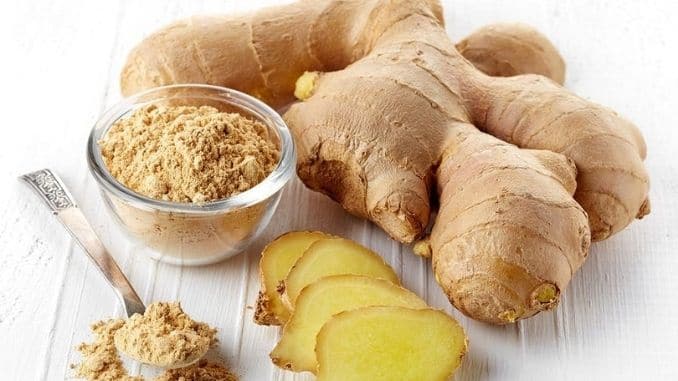
Lifelong fitness is truly earned in the kitchen, as cliched as it may sound. The food we eat is the yin to our exercise yang. We can squat and crunch all we want. But if we are always longing for that “last” slice of pizza or cheesecake, then I’m afraid that bathroom scale of ours is not going to smile back at us. In this article, let’s dive into the Best Herbs to Have in Your Cupboard.
For most of us “eating clean” conjures up an image of a very restrictive, flavorless diet much like a boring, soundless movie with no oomph to it. While achieving fitness requires discipline with nutrition, it certainly does not mean you cannot please your taste buds.
Speaking of taste, we have been wrongly led to believe that we can either have food that tastes great or a flat belly. Well, nothing could be farther from the truth. You most certainly can have the best of both worlds. It begs the question then of how? Herbs are the answer. Not only will you have food that you actually enjoy and look forward to. But you’ll also have tremendous health benefits from improved brain function to reduced inflammation and cancer risk.
In this article, we will discuss some Best Herbs to Have in Your Cupboard. And explore how they can amplify the taste of our food and provide major health benefits.
5 Best Herbs To Have In Your Cupboard
1. Rosemary
Packed with iron and calcium, rosemary is a fragrant herb that comes from the mint family. Apart from being one of the main herbs used in Asian and Mediterranean cuisine, it has several key health benefits. To start off, rosemary is known to be an anticarcinogen. A 2016 study explains how rosemary extracts can inhibit the growth of lung cancer-causing cells.
Not only that, another meta-analysis conducted by the University of Maryland Medical Center reported a host of vital health benefits like curing indigestion. Rosemary oil is known as an anti-inflammatory agent for muscle and joint pain.
-
How To Use It In Cooking
Rosemary has a unique lemon-pine profile to it that is slightly bitter. It is not a meek herb, but it does fuse well with a wide culinary spectrum allowing you the leeway to explore and experiment.
Roasted meats like chicken, pork and salmon are the best uses for rosemary, or you can use it elevate your sauces.
-
When You Should Not Use It
You should avoid using rosemary if you struggle with conditions like high blood pressure, ulcers, Crohn’s disease or ulcerative colitis. Rosemary affects the blood’s ability to clot and could interfere with any blood-thinning drugs you are taking.
You should also avoid it if you are diabetic because it can affect your blood sugar levels thus interfering with any diabetes control drugs you take.
2. Oregano
“Exotic” might not the very first word that comes to mind when we talk of oregano, but when it comes to elevating cuisine and health benefits, this humble herb native to Eurasian and Mediterranean countries can give any herb a run for its money.
It is loaded with vital micronutrients like vitamins A, C, E and K. A 2016 study demonstrated that oregano extracts also suppress the production of cells that cause liver cancer among adults. This Oregano oil has also been known to eliminate parasites like mites and ticks in mammals.
-
How To Use It In Cooking
Oregano has a strong peppery zing to it accompanied by a bit of bitterness. It is quite potent with a tendency to “hog” other flavors if not used judiciously, so make sure you pair it with the right ingredients.
It works in great harmony with lamb and mutton. You can also use it to breathe some flavor into grilled vegetables.
-
When You Should Not Use It
If you tend to experience allergic symptoms, it’s best to avoid oregano as it can cause skin rashes, irritation, itching, troubled breathing, difficulty in speaking, nausea, vomiting, and swelling of the lips, tongue and face.
You should also avoid it during pregnancy as it can adversely affect the fetus by weakening the inside layer of the amniotic sac that covers it.
3. Ginger
Although not exactly an herb if we go by the definition of “green and leafy” but this list wouldn’t be complete without mentioning ginger. It has been in use since time immemorial for its anti-inflammatory and therapeutic qualities.
It has been a well-known remedy for the treatment of nausea, especially for nausea and vomiting during pregnancy, as a 2014 meta-study demonstrates. Also, a 2012 study shows how ginger can aid in hunger control thus playing an important role in weight management.
-
How To Use It In Cooking
Sweet, warm, zesty and aromatic — it’s hard to find an ingredient with a flavor profile as diverse as ginger. Ginger is quite possibly the most versatile in ingredients that allows you the room to pair it with sweet, savory and anything in-between.
From flavoring your meals to elevating your tea or adding a bit of zing to ice cream, it’s hard to go wrong with it.
-
When You Should Not Use It
Ginger is mostly safe but, if consumed in excess, it can have certain side effects that you should be aware of. It can cause sudden peaks and valleys in blood pressure, so if blood pressure is a concern for you, it’s best to avoid ginger.
Also, it can enhance the effects of diabetic drugs, thus causing blood sugar to lower to more than the desired level. Excess ginger consumption can also expedite food and stool passage through intestines causing diarrhea.
4. Sage
Another member of the mint family, sage is rich in vitamin K, fiber, vitamin A, folate, calcium, iron, magnesium, manganese and B vitamins like folic acid.
Sage has a long list of health benefits and has been in use since the Roman age. In fact, it was an integral pillar of ancient Roman medicine. Sage positively preserves brain function and impacts patients with Alzheimer’s disease. It does so by preventing the breakdown of acetylcholine, which is a neural chemical messenger.
Research has also shown sage’s ability to sharpen our memory, even in healthier adults as shown by a 2008 study conducted by the Brain Sciences Institute at Swinburne University in Melbourne.
-
How To Use It In Cooking
Also known as the “savory” herb, sage complements a wide variety of meats. It brings out the best in lamb, pork and sausages. It also pairs very well with seafood like tuna and swordfish and is a superb way to aromatize your Thanksgiving turkey.
Sage’s earthy yet savory flavor profile is complemented very well by onion, garlic, thyme, oregano, and parsley. However, use it sparingly as it has quite a strong flavor base that can overpower other ingredients easily.
-
When You Should Not Use It
A higher consumption of sage is known to cause muscular convulsions. Also, you should avoid higher quantities of sage if you’re breastfeeding as it can negatively impact breast milk production.
5. Parsley
Mild in flavor, it is probably one of the most underrated herbs around. It may lack the sharp zingy punch like the other Herbs to Have in Your Cupboard on our list, but if paired with the right dish it can more than make up for its simplicity.
Parsley as one of the Best Herbs to Have in Your Cupboard is nutrient-rich and is packed with vitamins A, K, C, and E; thiamine; riboflavin; niacin; calcium; folic acid; vitamin B6; and vitamin B12.
Parsley can aid in safeguarding against conditions such as osteoporosis and arthritis by bolstering bone and joint health. Studies have also shown that parsley can aid in managing blood sugar levels thus acting as an effective anti-diabetes agent. Additionally, parsley is sometimes used to help counter bad breath.
-
How To Use It In Cooking
Parsley perfectly complements Mediterranean cuisine like pasta, dressings, salads, and soups. It raises the flavor bar when paired with fish, chicken, pork, potatoes, butter, lemon, egg, basil, chili, garlic, chives, dill, mint, oregano, rosemary, thyme, black pepper, and sea salt.
-
When You Should Not Use It
If you have a condition like kidney stones, it is best to avoid parsley as it can lead to oxalate overconsumption. Although oxalates are naturally occurring compounds, they can aggravate kidney stones if consumed in excess. Also, parsley should be avoided during pregnancy and breastfeeding.
So, there you have it. Best Herbs to Have in Your Cupboard that will not only transform that bland chicken breast into a meal fit for a chef but will also keep your health on track. The key here is to remember that moderation is the name of the game. Be judicious when using Best Herbs to Have in Your Cupboard or any ingredient for the first time, and if you happen to have any health complications, it’s best to consult your doctor.
We look forward to hearing about your culinary adventures. Here’s to tastier food and healthier you.
For your guide to the best foods to heal your body, check out The Best Foods that Rapidly Slim & Heal in 7 Days, here!




